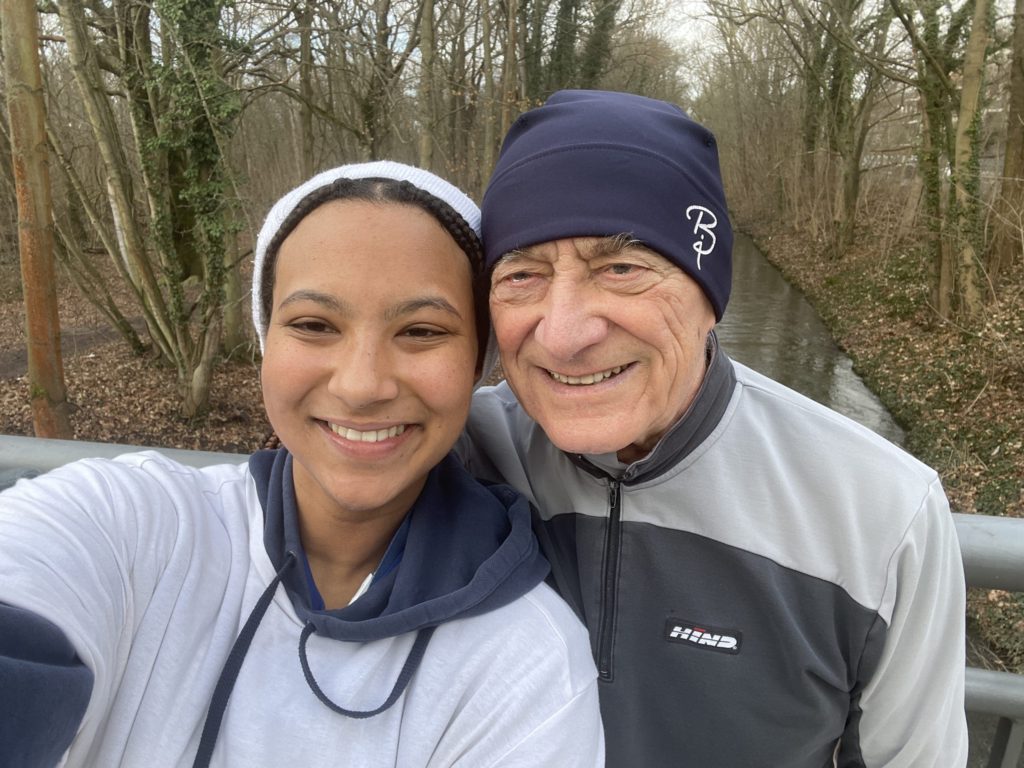Posted: December 13, 2022
With the 12 days of Christmas countdown, I wanted to share my 12 most Out of Pocket Stories in 12 European Countries. Happy Holidays!
Day 1: Germany
Read and watch the lessons I learned from Horst and the pilates intervention that lead to a lifelong friendship.
When strangers smile at you on the street, baristas always ask how you are, and even the local funeral home tells you, “Have a good day,” after picking up your dad’s ashes – you get kind of used to the hospitality of a small town. So, imagine my surprise when “Hi, how are you!” only resulted in a silent stare.
To get a sense of how prepared I was to live in Leipzig: I didn’t speak German, I had never traveled outside of North America, and I was coming to Bratwurst country as a vegetarian. For my year-long fellowship, neither Germany nor I were ready for each other.
Fortunately, the kindness of my host mom was warm against the eastern German winter. Outside of our home, however, my “Hellos” or “Good mornings” were greeted with twisted faces. Don’t expect the local baker to ask you how your day’s going. Only knowing each other personally would justify such a conversation. Small talk was taboo. Everything was a quick transaction.
When social customs were misunderstood, I blamed my lack of German. But, in certain instances, hostility needed no translation. It wasn’t simply the ignoring of my hello’s, but those who made undercutting comments concerning my race, and dismissed my efforts of kind conversation, that quieted my personality. For a while, I suppressed the friendlier parts of myself, and the inclination to make friendships. As a result, living in Germany was extremely lonely – a stark contrast from my small hometown.
Two months later, my gym closed indefinitely due to Covid lockdowns. For exercise, I forced myself to train outside. This was how I met Horst. The 82-year-old, avid marathoner, ran in the same park every morning and asked if I wanted to be his running buddy. I said yes.
“She is 60 years… younger than me,” was one of his favorite ways to explain the pair of odd runners we were. Honestly, despite our six-decade age difference, most of the time Horst ran circles around me. As we shared stories, raced one another on trails and greeted people joyfully out of breath, Horst continually gave me opportunities to talk to locals. I learned most of my German when running up a hill. As my fluency expanded, so did my community. Kilometer by kilometer my friendship with Horst grew, and Leipzig slowly started to feel a lot less lonely.
As I watched my friend Horst navigate the world with carefree charisma, it made me realize that living in a new country doesn’t mean you need to assimilate completely. When Horst’s greetings were brushed off, he remained unbothered. He saved that hello for the next person. My experience wasn’t defined by how many people that accepted me, but rather, the meaningful connections I did make. On our runs, we gave kindness first and let people do with it as they wish. Horst had me see the bigger picture: no one owes you that “Good morning,” but there will always be someone who says it back.
